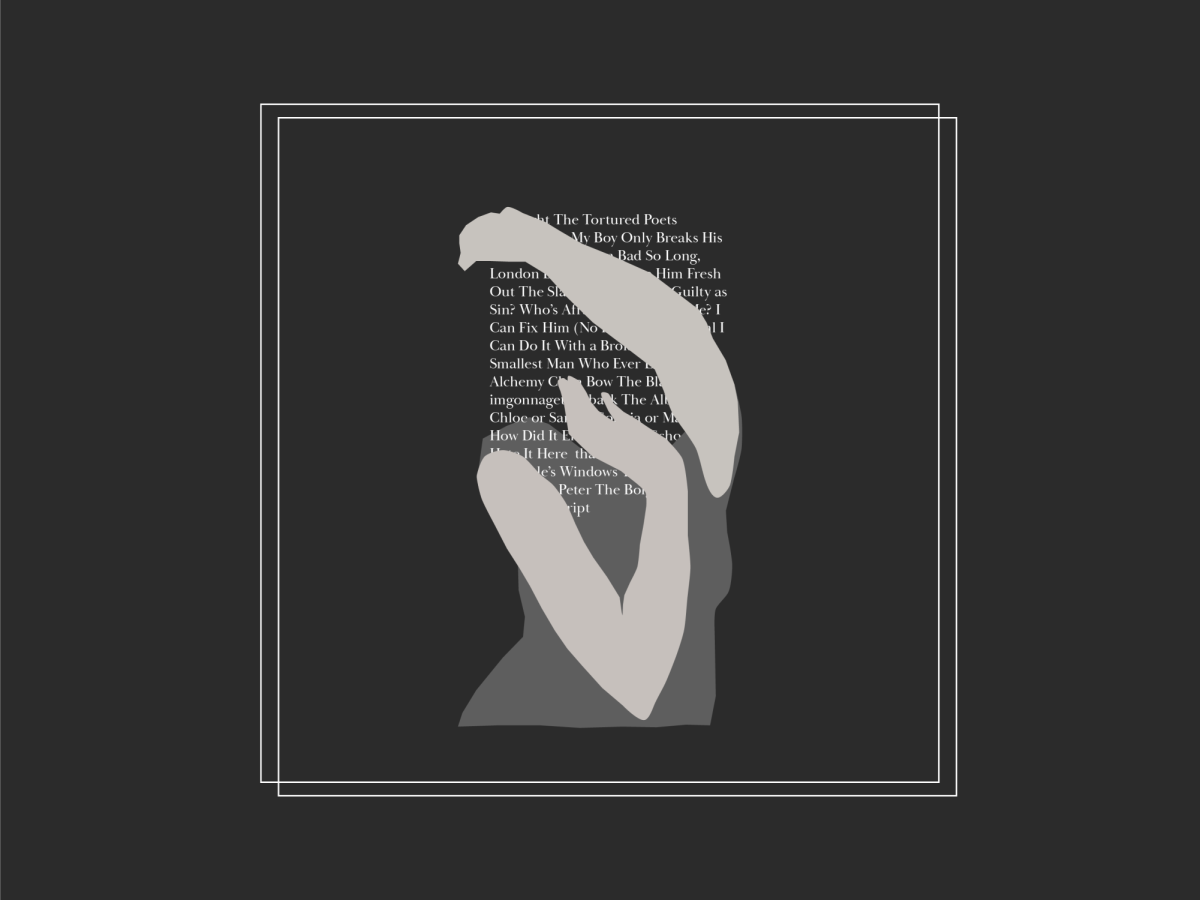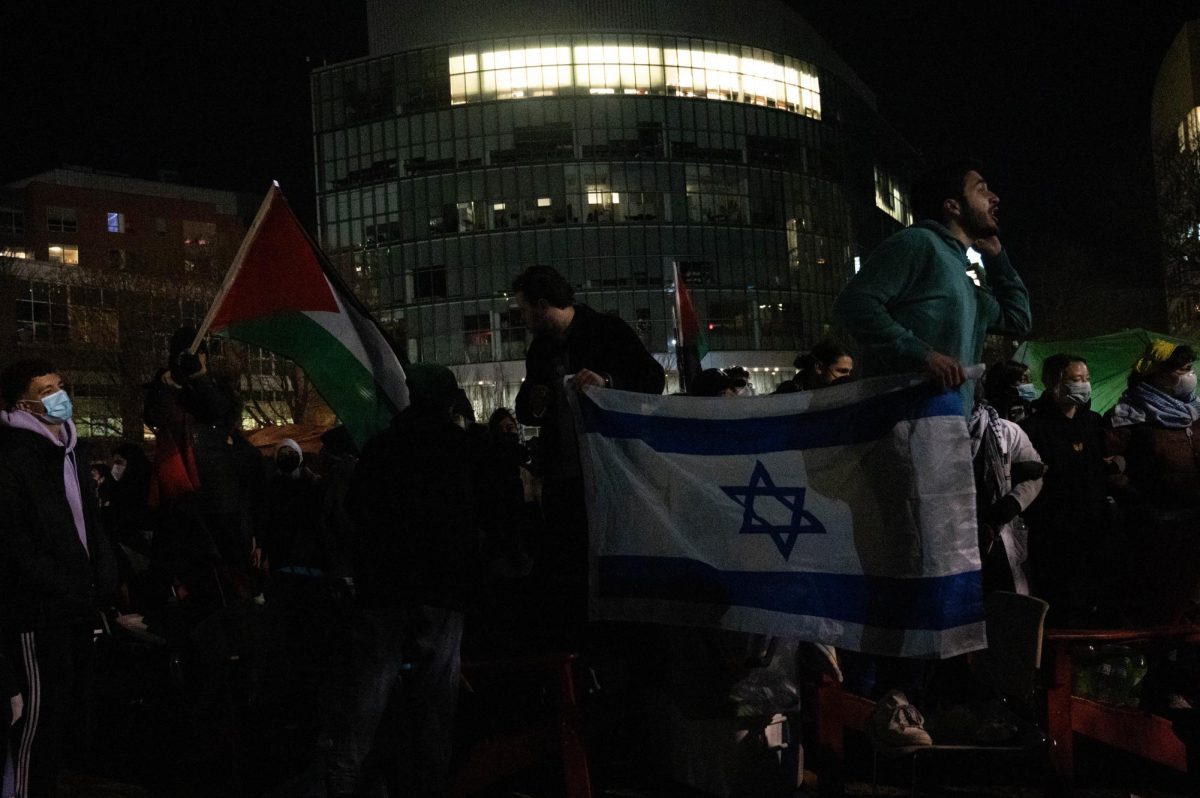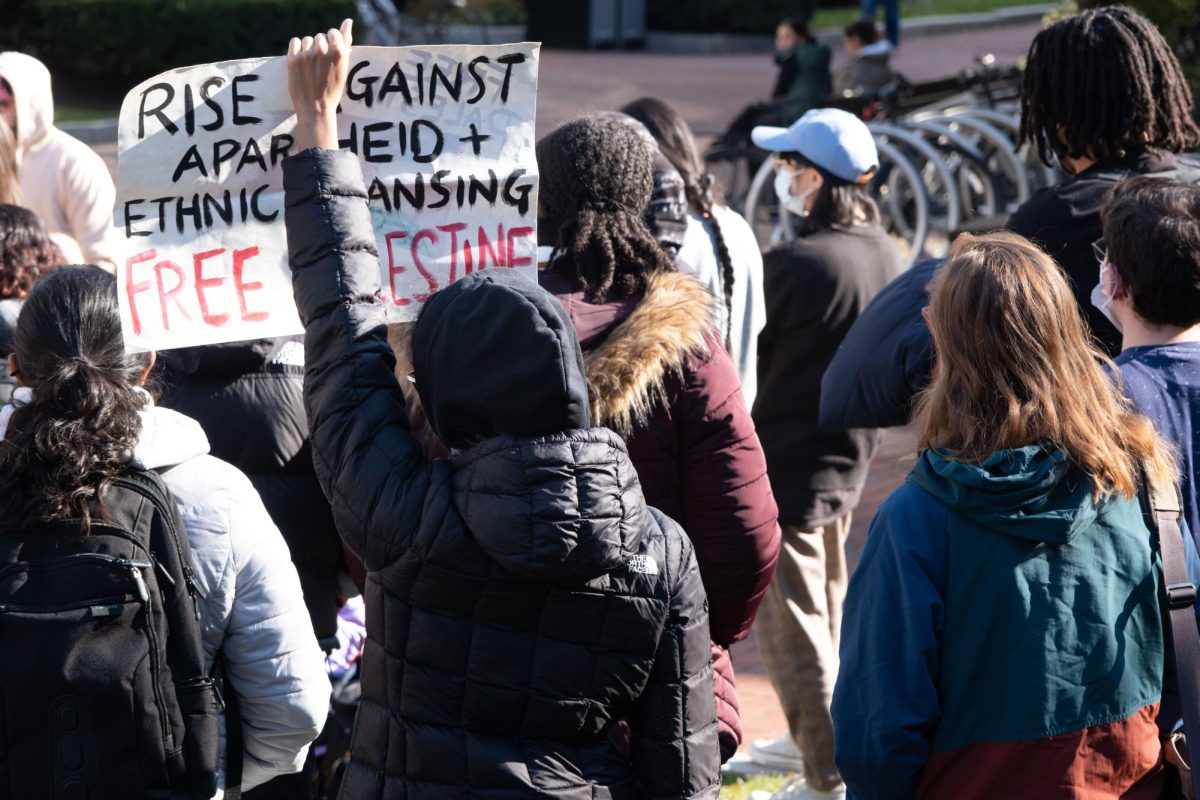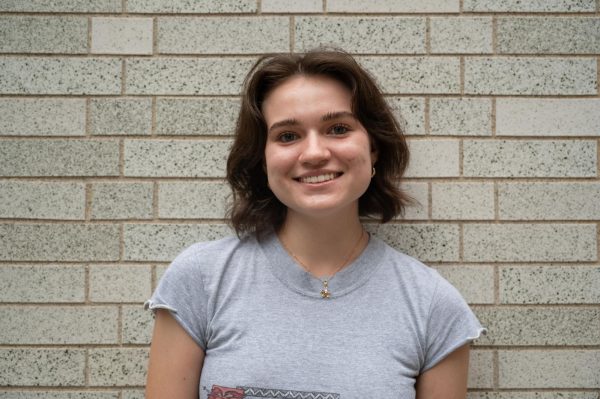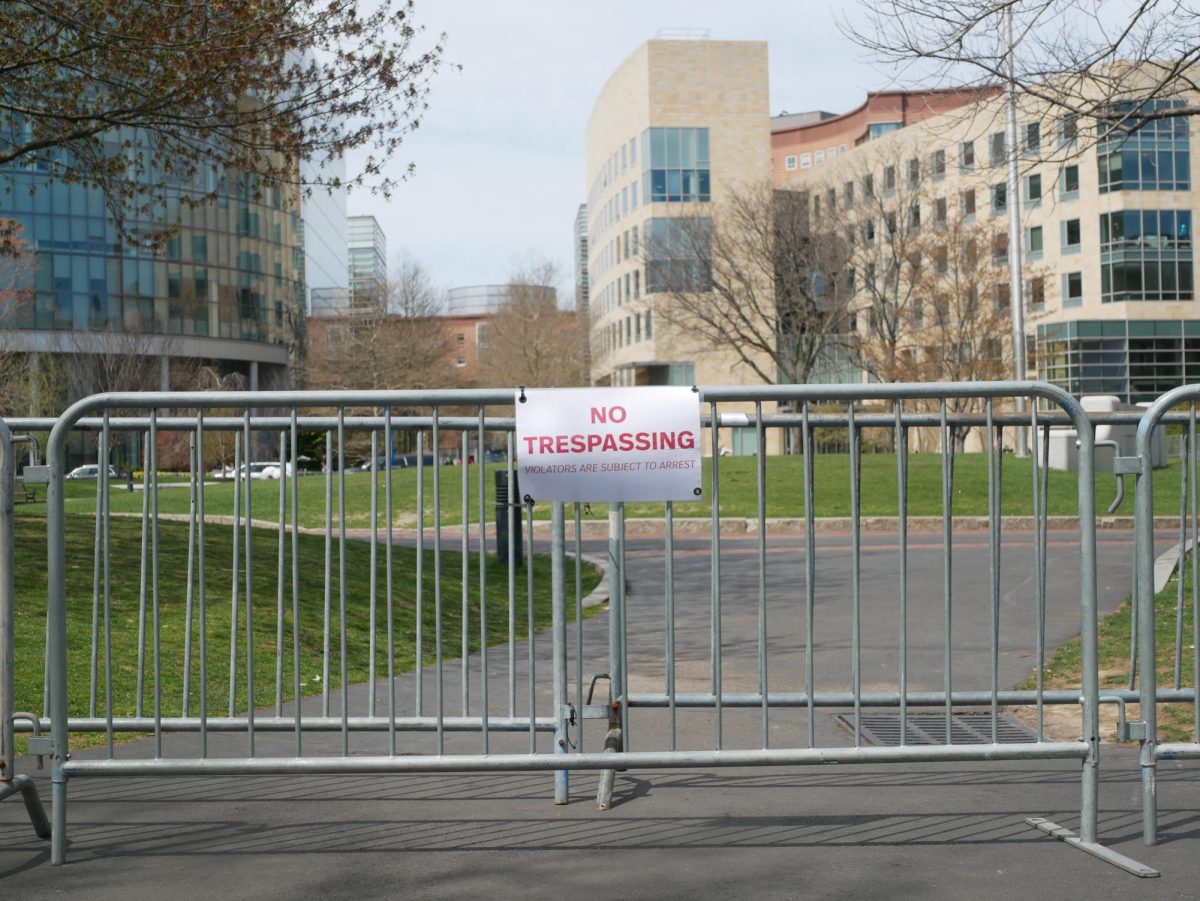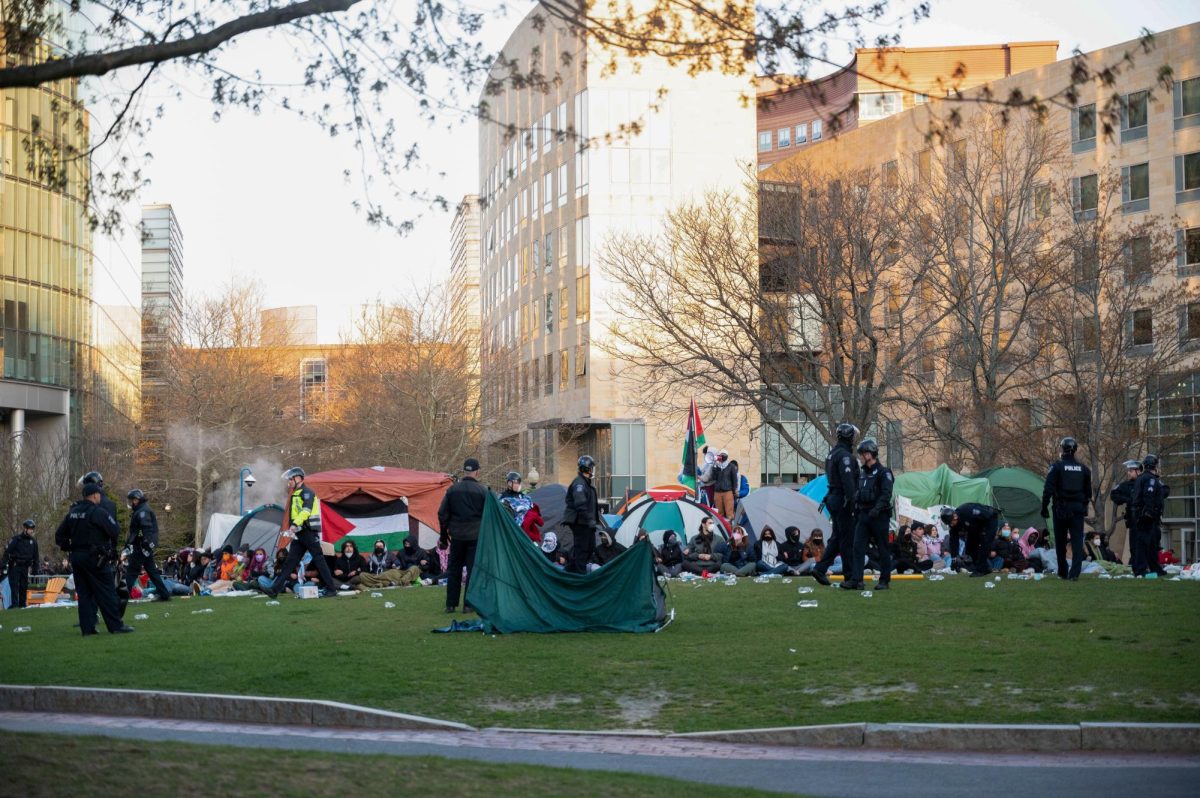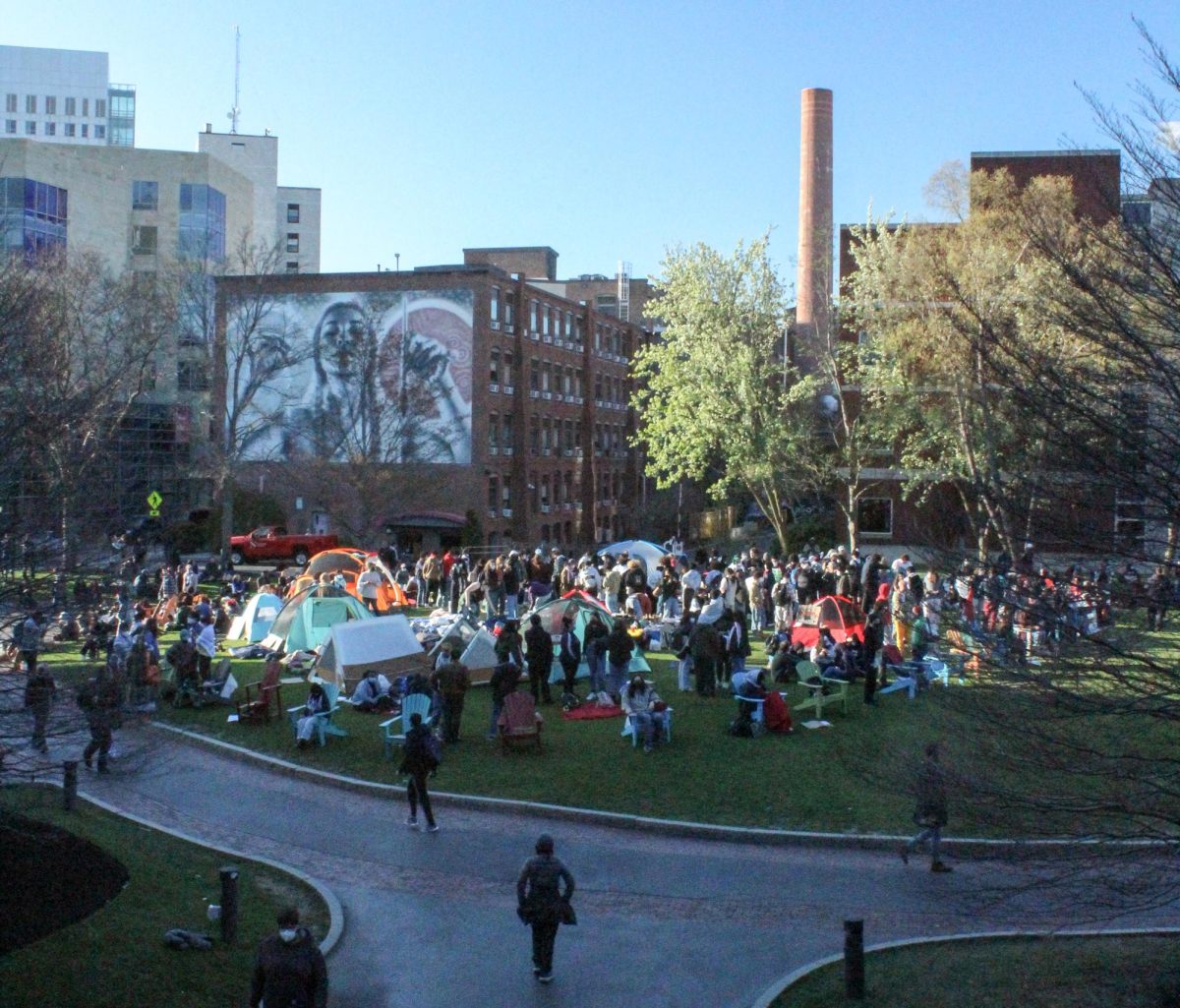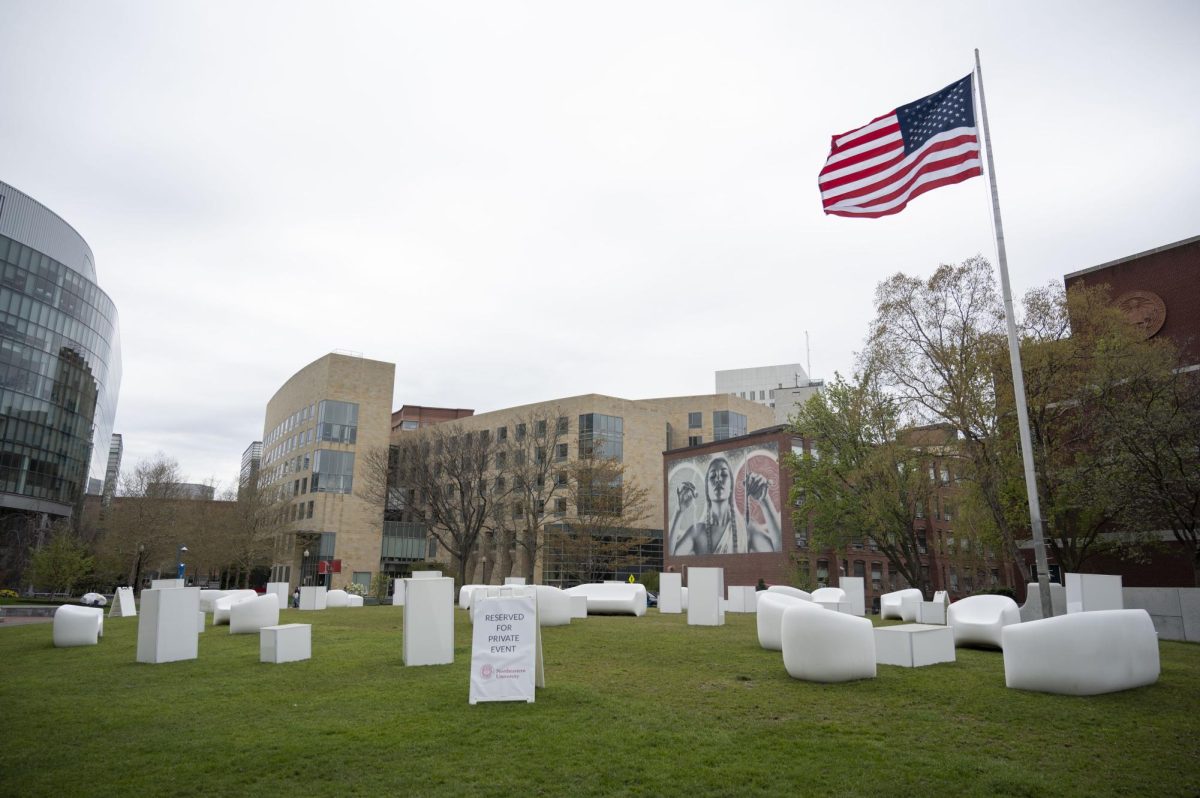More than 20 Northeastern faculty and staff have formed a chapter of the nationwide Faculty for Justice in Palestine group and signed on to a letter expressing solidarity with Palestine.
The letter, which faculty shared with The News, condemns what it calls penalization of pro-Palestinian expression and “longstanding university norms and policies” that have been “unevenly applied” during student protests after the outbreak of the Israel-Hamas war.
“University campuses should not be corporate environments, but sites for debate, contestation and the struggle for truth,” the letter reads. “We cannot be silent bystanders, but engaged educators and scholars who stand against genocide and stand up for justice.”
Twenty-two professors, assistant professors and assistant teaching professors signed the statement, which also announces the formation of a Northeastern Faculty and Staff for Justice in Palestine, or NFSJP, group.
The letter’s publication comes after months of pro-Palestinian student activism calling on Northeastern to cut its ties with companies that do business with Israel and demanding an immediate ceasefire in Gaza. Students have also repeatedly called out the university for what they say is stifling and penalizing pro-Palestinian speech.
It’s not the first letter faculty have sent to the university regarding the Israel-Gaza war.
In November 2023, more than 120 faculty and staff members signed an open letter condemning antisemitism and criticizing pro-Palestinian protests where slogans like “From the river to the sea” are used.
Faculty for Justice in Palestine, or FJP, has chapters at 80 other campuses across the country. The organization was founded after Israel declared war on Hamas after Hamas’ Oct. 7, 2023 attack, according to the group’s website.
“We join a larger national network that has formed in response to the unprecedented censorship and retaliation for those who speak out on the Palestinian cause, particularly in light of the violent genocidal assault that continues to unfold on the Palestinians in Gaza,” NFSJP said in a statement to The News.
In a FAQ article published by university-run news outlet Northeastern Global News, the school says that it “does not impose limitations upon the freedom of faculty members” to decide what they teach. But discussions of what the school deems “controversial matters” should serve educational, and not political, agendas.
“Faculty members are always expected to exercise appropriate discretion and professional judgement in all facets of their teaching and research, and abide by Northeastern’s policies,” the article reads in response to the question “What is the university’s stance on academic freedom for faculty?”
FJP has six principles of unity for its chapters, which NFSJP echoes in its letter. The principles include endorsing the Boycott, Divestment and Sanctions movement; following action calls from faculty at Palestinian universities; defending and supporting students who are “defamed or disciplined” for supporting Palestine; educating the public about Israel’s “violent, repressive occupation”; and combating racism.
The letter says that while the group has been “heartened” by “some ways in which [the] university has responded to the current crisis,” it has also been “distressed” to see students punished for protests.
In a statement to The News, the group said it supports the university’s official recognition of the Students for Justice in Palestine, or SJP, and Northeastern Law Students for Justice in Palestine.
“At the same time, we are concerned by — and are monitoring closely — Northeastern’s uneven application of policies towards these student groups, such as vetting and approval of invited speakers, allowances to hold public events, and policing of their engagement with faculty and staff, among others,” NFSJP said.
During a chalking demonstration in November 2023, Mariam Hassan, a first-year student in the School of Law and organizer with SJP, told The News she found the university’s demonstration regulations limiting.
“It becomes impossible to do indoor things, disruptive things, and that’s what solidarity with Palestine means,” Hassan said.
In January, the Office of Student Conduct and Conflict Resolution placed three students who were involved in a Huskies for a Free Palestine, or HFP, protest in December on deferred suspension for breaking the school’s Code of Student Conduct. In February, the unofficial campus group was denied access to EXP when they attempted to deliver a letter calling on the university to demand a ceasefire in Gaza to President Joseph E. Aoun.
“Northeastern Faculty and Staff for Justice in Palestine stands in solidarity with Northeastern students who are advocating for Palestinian liberation,” the letter reads. “We seek to support and amplify student organizing. We also seek to promote scholarship and learning about Palestine, and on the interlocking histories of settler colonialism and empire more broadly.”
The group said its immediate demands for the school are aligned with the national FJP’s core principles.
“One thing we would like to see right away is more respect for students’ rights to express their views and to gather for events and demonstrations,” the group told The News. “This should be a campus where open debate and diverse views are encouraged rather than subjected to endless red tape and ever-changing requirements.”
FJP has chapters at Amherst College, Boston University, Harvard University and the University of Massachusetts on the Amherst and Boston campuses.
“We echo the words of colleagues elsewhere who have recognized the movement for justice in Palestine as a crucial terrain for defending freedom of expression within the academy; nurturing free inquiry and academic autonomy, engaged pedagogy, and open scholarship; and strengthening systems of democratic governance on our campus,” the group’s letter reads.
“We stand against all forms of racism, Islamophobia and antisemitism. We view the struggle for Palestinian freedom as interconnected with anti-racist and anti-colonial struggles around the globe, with movements for gender and sexual freedom, disability justice, workers’ rights, and a liveable and sustainable planet.”
Read the full letter below:
At a time when we are witnessing pro-Palestinian expression being penalized on campuses across the country and the unfolding genocide in Gaza, a continuation of over 75 years of violent dispossession of the Palestinian people, we join our colleagues at nearly one hundred other colleges and universities who have adopted the Principles of Unity of Faculty for Justice in Palestine. Here at Northeastern, we have been heartened by some of the ways in which our university has responded to the current crisis, but we have also been distressed to see longstanding university norms and policies give way to a cascade of new and arbitrary requirements that are vaguely defined and unevenly applied. As a university that prioritizes equity, inclusion, and justice, we must protect the voices and safety of our most vulnerable populations that are subject to suppression. We are firmly committed to principles of free expression and to resisting the inaccurate conflation of anti-Zionism with antisemitism. We echo the words of colleagues elsewhere who have recognized the movement for justice in Palestine as a crucial terrain for defending freedom of expression within the academy; nurturing free inquiry and academic autonomy, engaged pedagogy, and open scholarship; and strengthening systems of democratic governance on our campus. University campuses should not be corporate environments, but sites for debate, contestation, and the struggle for truth. We cannot be silent bystanders, but engaged educators and scholars who stand against genocide and stand up for justice.
Northeastern Faculty and Staff for Justice in Palestine stands in solidarity with Northeastern students who are advocating for Palestinian liberation. We seek to support and amplify student organizing. We also seek to promote scholarship and learning about Palestine, and on the interlocking histories of settler colonialism and empire more broadly.
We support the international nonviolent movement for Boycott, Divestment, and Sanctions and its call for the end of Israeli apartheid and for freedom, justice, and equality for Palestinians throughout historic Palestine, including the right of Palestinian refugees to return to their homes and properties as recognized in UN resolution 194. We stand against all forms of racism, Islamophobia and antisemitism. We view the struggle for Palestinian freedom as interconnected with anti-racist and anti-colonial struggles around the globe, with movements for gender and sexual freedom, disability justice, workers’ rights, and a liveable and sustainable planet.


